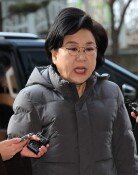[Column] Citizens¡¯ movement: Where is it?
[Column] Citizens¡¯ movement: Where is it?
Posted October. 11, 2000 13:22,
The citizens¡¯ power was great. Slobodan Milosevic of Yugoslavia, known as the butcher in Balkans, finally was ousted from power by the people¡¯s power. The march of demonstrators celebrating the end of the dictatorship in the midst of military vehicles was really impressive.
The news of the bloodless revolution from Belgrade was felt anew by we, Koreans, who brought the then-military dictatorship to its knees through people¡¯s power 13 years ago.
Dictatorial regimes faced citizens¡¯ resistance one after another since last year. In Jakarta, Indonesia, and in Lima, Peru, dictatorial governments collapsed or faced crises. Against the diagnosis by Samuel Huntington, a U.S. scholar in political science that a third wave toward democratization has been ebbing out slowly after reaching a peak in the mid-1990s, the desire of citizens for democracy is burning fiercely across the global village.
But the result of the burning desire seems to be perilous. It would be enough to recall the difficult situation Romania, Russia and Poland went through after their citizens¡¯ revolutions. The adverse situation originated from economic problems.
In Prague, Czech Republic, where the annual meeting of the International Monetary Fund and World Bank, self-claimed managers of the world economy, was held at the end of September, anti-globalization demonstrators from non-governmental organizations gathered. They gathered there for struggles beyond their ability to deter the speed of the advanced capitalistic countries targeting free trade and economic integration, which are another axis of the globalization.
Civic campaign leaders in their 20s to 40s from both developed and underdeveloped countries mingled with each other in the protest. They were united under the common goal of delivering the citizens¡¯ opinions through their own bodies to the reconnoitering soldier of the G-7 forcing all the sectors of economy and society to adopt the global standard, while concealing the richness of the minority and the poverty of the majority.
Such a scene was not first witnessed in Prague. The solidarity protests by world NGOs in Seattle, United States, during last year¡¯s general congress of the World Trade Organization were a success. Since then, international organizations leading the global economy have been the targets of attack by citizens¡¯ power throughout the globe.
Democracy and the free market are the political and economical principles prompting the global alliance. Yet the two often give rise to mutually contradictory results in the boundary of reality. Citizens of developing and underdeveloped countries, as soon as they attain democracy, come to understand that they have to enter an indefinite competition with advanced companies through their market opening.
The short-term outcome of market opening and free trade features an extreme social split, conflicts among classes and a total reduction of social security network that has been maintained in a hard way.
In this case, the options the state can choose are remarkably reduced and democracy is put into danger as much. As a result, the duty to solve the problems caused by the mutually contradictory results is transferred naturally to neither the state, nor private enterprises, but to the Third World.
But the problem is that for the citizens that have neither official power, nor systematic organizations but their literally voluntary organizations, there are no effective ways except for raising their voices or demonstrating.
People¡¯s power faces a dilemma due to the contradictory results arising from democracy and market economy. This is the common agony that can be found behind the different backgrounds of the recent protestors¡¯ marches in Belgrade and Prague.
Is the Korean NGO movement caught in this sort of dilemma? NGO movement in Korea has been pooling pan-citizens¡¯ wisdom to the check of power and success of reform politics since the democratization of the nation. But of late, amid economic difficulties, the civic movement seems to be failing to play its own role, losing the direction of its criticism. This might be attributed to a worry that clinging to the democratic moral obligation might further jeopardize the economy.
But how long will the citizens look on with folded arms at the government¡¯s dogmatic management of state affairs, which has been intensifying entering the second half of the incumbent administration? It is not desirable for the government to be dragged by NGOs, but what is more dangerous is not to hear citizens¡¯ voice. There are many people who suspect that President Kim Dae-Jung is beleaguered by non-experts with no policy making ability or he is turning his face from public opinion.
There is no one who assumes responsibility for the failure of sales of Daewoo Motor and Hanbo Steel. Without coming up with alternatives to help break through the difficult economic situation, the government is still following stereotyped policies and dares to put out 40 trillion won in addition in the financial restructuring program without making a single word of explanation on how much burden the citizens will have to shoulder. All these make the people harbor suspicions.
The government should return to its first intention and read accurately the agony of the citizens about the overall state affairs.
Professor Song Ho-Keun, Social Science of Seoul National University







